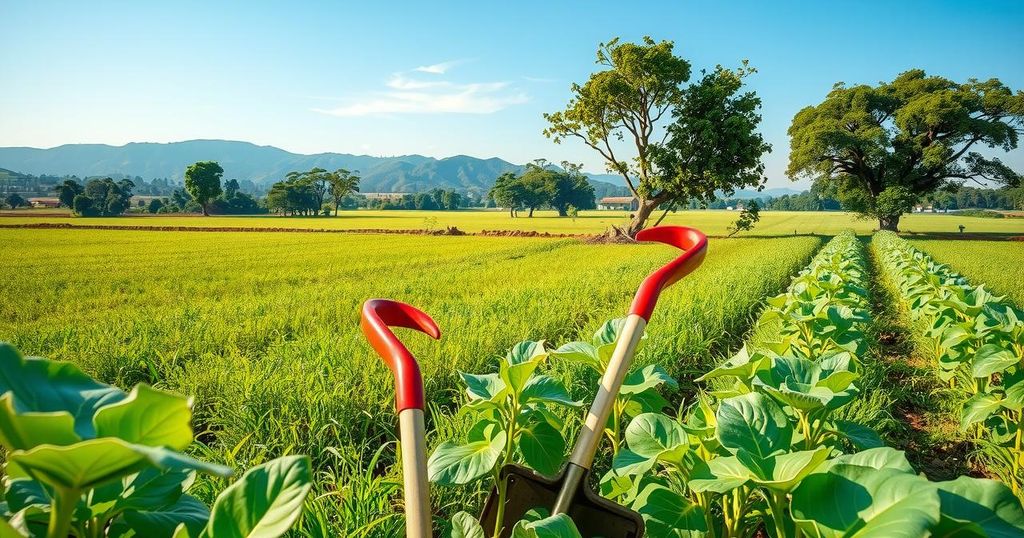Dr. George Domfeh advocates for investment in Ghana’s agriculture to create jobs and reduce reliance on imports. He connects agricultural improvements to strengthening the Cedi and urges a collective national effort to address historical failures since independence in 1957.
Dr. George Domfeh, a Development Economist, emphasizes the urgent need for substantial investment in Ghana’s agricultural sector. Enhancing agriculture not only stands to create employment opportunities but also aim to reduce the nation’s heavy dependence on imported food products. Domfeh argues that this dependence has adversely affected the local currency, the Cedi, by diminishing its strength against foreign currencies.
During his address at the post-budget dialogue facilitated by the University of Professional Studies, Accra (UPSA) and the Institute of Economic Research and Public Policy (IERPP) on March 14, he pointed out the detrimental effects of Ghana’s import reliance on its economy. He remarked that the lack of local agricultural development necessitates purchasing food from international markets, which exacerbates inflationary pressures on the Cedi as Ghanaians must convert local currency into dollars for these transactions.
Further, Domfeh highlighted that Ghana’s current economic challenges can be traced back to systemic issues that have persisted since the country’s independence in 1957. He cautioned against merely blaming the current government for the situation, advocating instead for a collective national effort to address historical failures in agricultural investment and production. He asserted that revamping the agriculture sector could lead to job creation and, simultaneously, a more robust manufacturing sector for Ghana.
In conclusion, Dr. George Domfeh calls for significant improvements in Ghana’s agriculture sector as a pathway to job creation and economic stability. By reducing reliance on imports, the strength of the Cedi could be enhanced. His insights underline the historical challenges that have continued to impede agricultural development since independence, urging a shift toward proactive investment in local production to secure a more sustainable economic future.
Original Source: 3news.com






